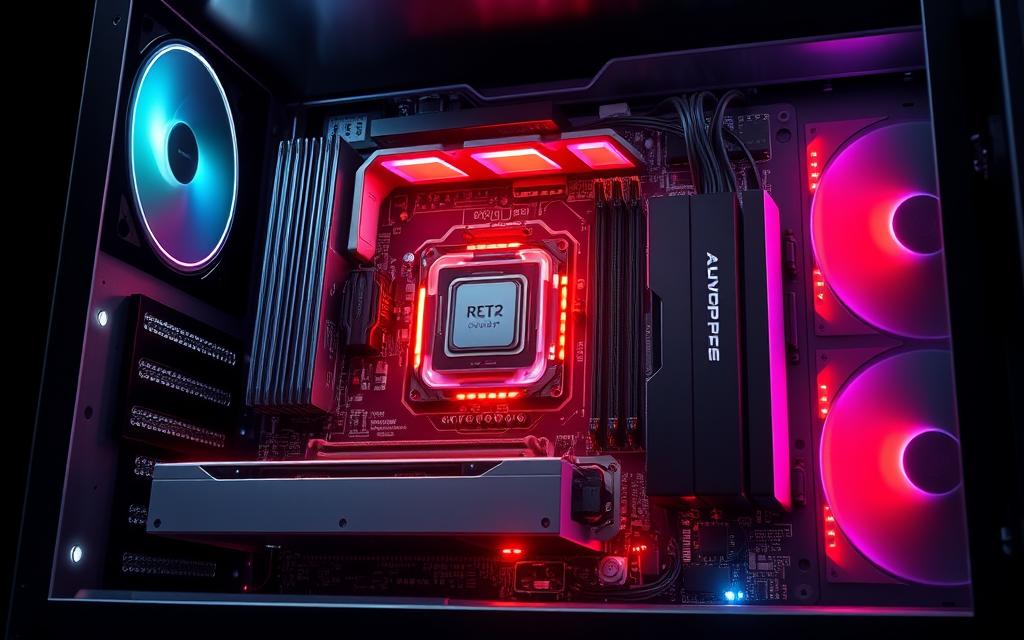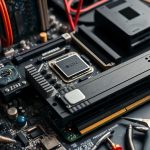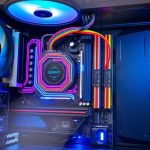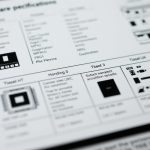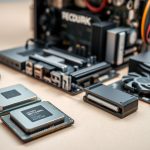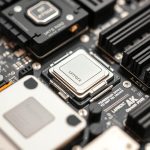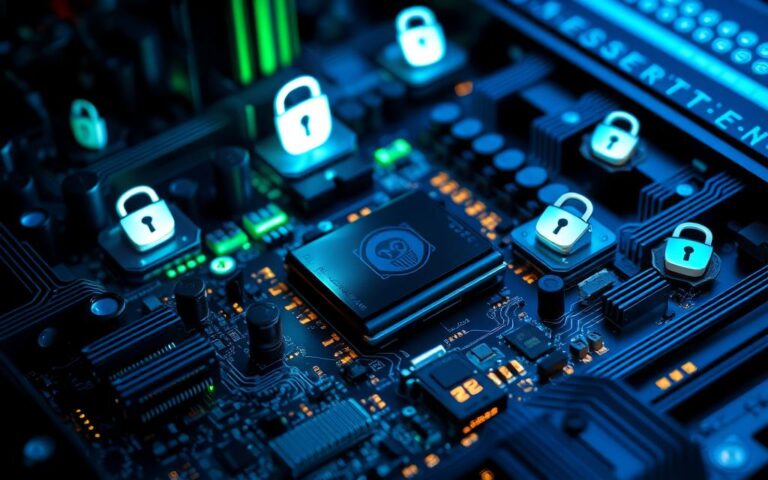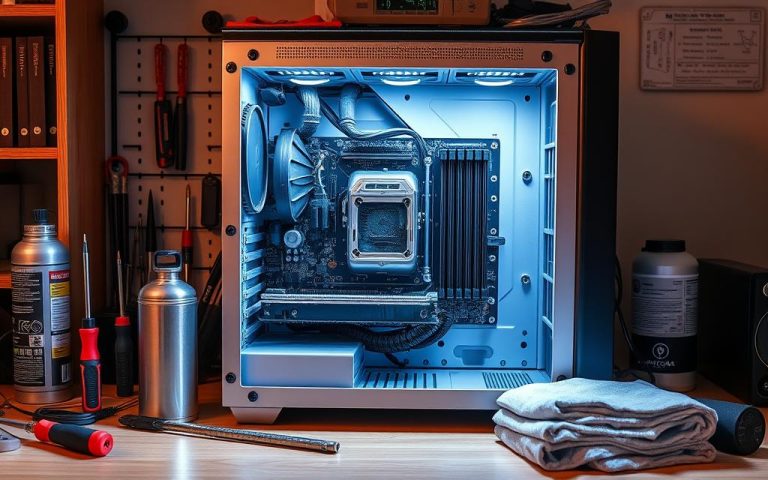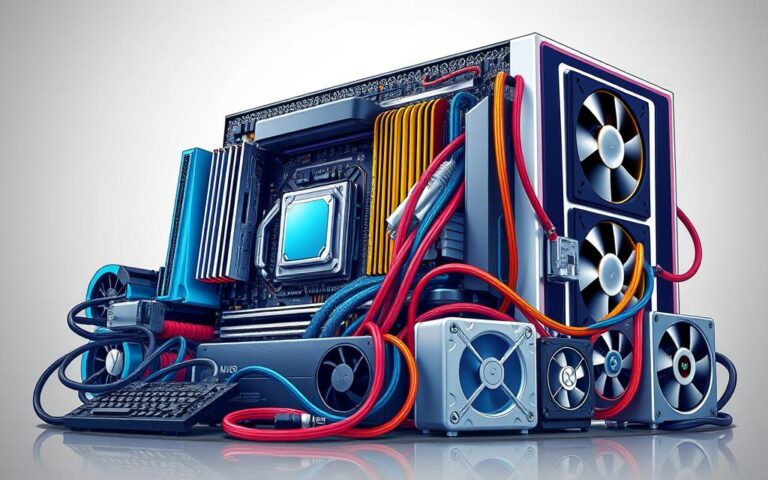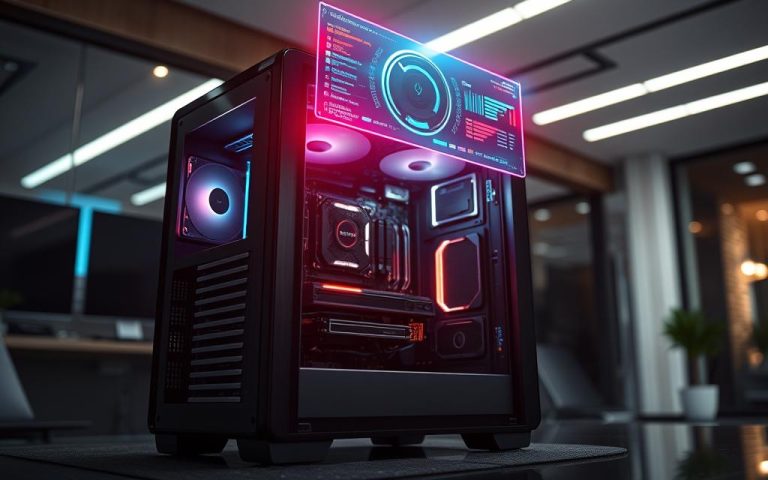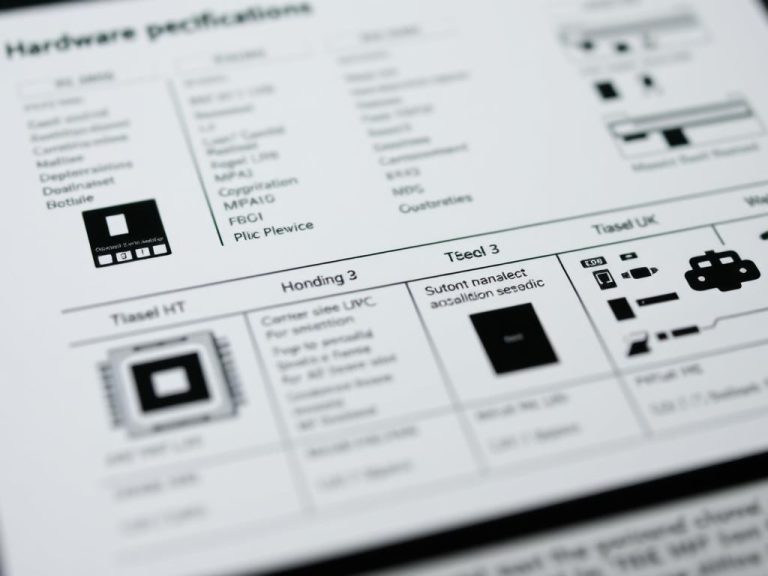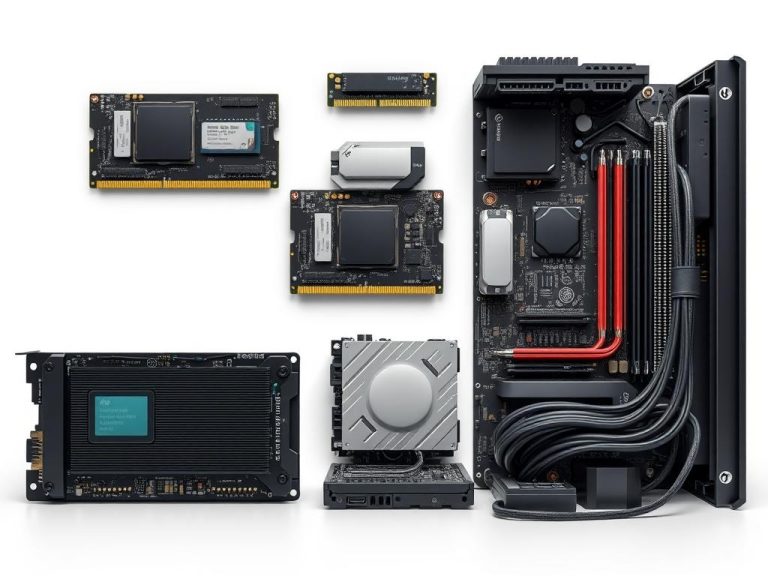Why Is Hardware Crucial in a Computer System? Understanding Its Role
Computer hardware is the core of any system, and its role is huge. It works hand in hand with software to make computers work well. Each part, from the processor to memory and storage, helps create a smooth experience for users.
Hardware and software together handle information, store data, and manage inputs and outputs. Knowing how these parts work together shows us how complex and advanced today’s computers are.
In our digital world, hardware and software are more important than ever. As tech advances, so does the need for better hardware. Understanding their roles helps us use computers fully, driving progress and new ideas.
Understanding Computer Hardware: The Foundation of Computing
Computer hardware is key to any computer’s performance. It’s important to know the basics to understand today’s computers. Keeping hardware in good shape is key to its longevity and performance.
The main parts of computer hardware are the processor, memory, and storage. These have changed a lot over time. Thanks to new tech, they work better and faster now. Knowing how they’ve evolved helps us see how far computing has come.
Basic Components of Computer Hardware
- Processing Units: The brain of the computer system, responsible for executing instructions
- Memory: Temporary storage for data and applications
- Storage: Permanent storage for data and applications
The Evolution of Computer Hardware
Computer hardware has changed a lot from the start to now. It’s gotten better in performance, efficiency, and how much it can hold. As tech keeps getting better, we’ll see even more new things in computer hardware.
Hardware vs Software: A Symbiotic Relationship
Hardware and software work together well. They need each other to work right. Knowing this helps us see how complex today’s computers are. It also shows why keeping hardware in good shape is so important for performance.
The Importance of Hardware in Computer System Performance
Computer system performance greatly depends on its hardware. Efficient data processing is key for smooth operation. The processing unit, memory, and storage solutions work together to process data quickly and accurately.
Handling storage solutions well is also important. This includes both physical devices and the software that manages data. Optimizing hardware can make systems faster and more productive.
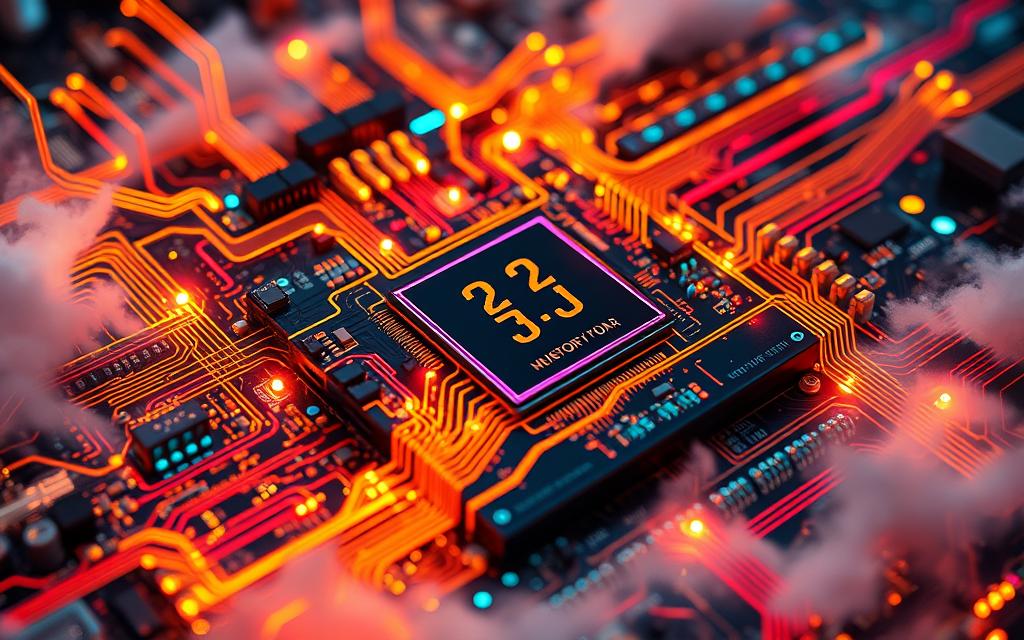
- Processing unit capabilities
- Memory and storage solutions
- Software optimization
Choosing the right hardware components is vital. It helps create a system that meets your needs. This ensures efficient data processing and storage.
Optimizing hardware configurations is critical for achieving seamless system performance and efficient data processing.
| Hardware Component | Impact on System Performance |
|---|---|
| Processing Unit | Directly affects data processing speed and efficiency |
| Memory | Influences system responsiveness and ability to handle multiple tasks |
| Storage Solutions | Affects data retrieval and storage capacity |
Essential Hardware Components and Their Functions
Computer systems need different parts to work well. At the center, processing units do the main work. They handle instructions and data. Memory and storage devices help manage digital info.
Input/output devices are key for users and machines to talk. They let users give data and get results. Keyboards, displays, and printers are examples. They help users talk to the system.
- Processing units: executing instructions and handling data
- Memory and storage: managing digital information and providing a platform for data storage
- Input/output devices: facilitating user interaction and providing a means of inputting and outputting data
Knowing how these parts work is important. It shows how complex and smart modern computers are. By understanding processing units, memory, storage, and input/output devices, users can use their computers better.
| Hardware Component | Function |
|---|---|
| Processing Units | Executing instructions and handling data |
| Memory and Storage | Managing digital information and providing a platform for data storage |
| Input/Output Devices | Facilitating user interaction and providing a means of inputting and outputting data |
How Hardware Impacts System Reliability and Efficiency
Memory and storage are key to system reliability. A well-built system with enough memory and storage boosts system reliability. This means fewer crashes and less downtime. Regular upkeep is also vital to keep systems running smoothly.
Efficiency is linked to system reliability and hardware performance. Optimizing memory and storage leads to quicker processing and better multitasking. Here are some tips for better memory and storage management:
- Regularly update drivers and firmware for better performance
- Keep an eye on system resources to spot bottlenecks
- Have a solid backup plan to avoid data loss
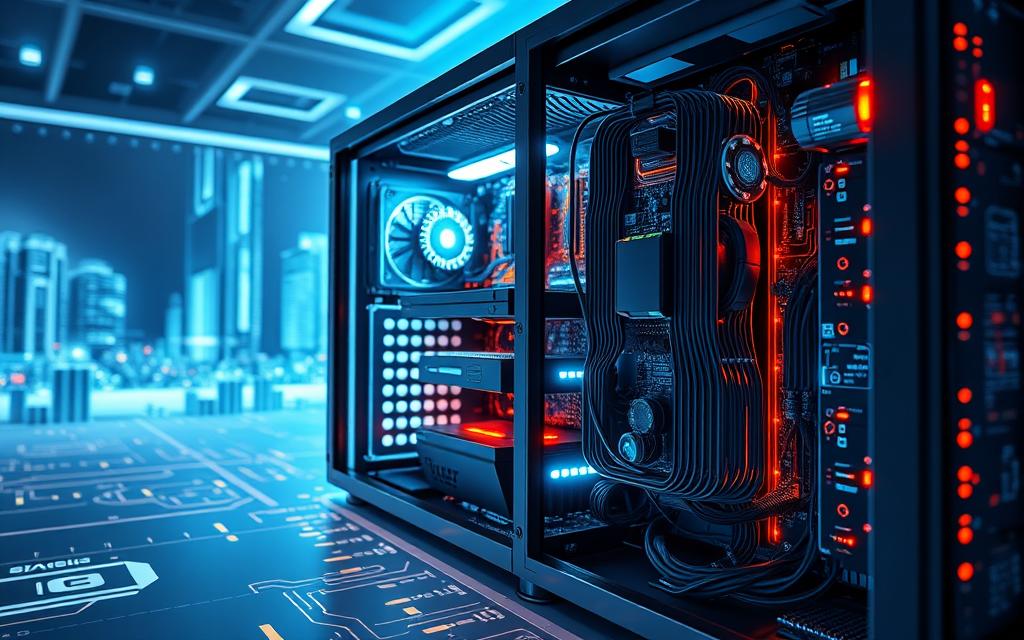
By actively managing memory and storage, users can keep their systems running smoothly. This reduces downtime and boosts productivity.
| Component | Impact on System Reliability | Impact on System Efficiency |
|---|---|---|
| Memory | Significant impact, as insufficient memory can cause crashes and errors | Direct impact, as more memory enables faster processing and improved multitasking |
| Storage | Crucial, as storage failures can result in data loss and system downtime | Substantial, as faster storage solutions enable quicker data access and processing |
The Role of Hardware in Data Processing and Management
Computer hardware components are key in handling data. They make sure data is processed and stored safely. Understanding how different parts work together is vital for better data handling.
It’s important to mix hardware and software well. This ensures data systems work smoothly and reliably. For example, data storage solutions improve with the right hardware, like fast hard drives.
- Data processing capabilities: The ability of computer hardware components to process data efficiently and accurately.
- Storage solutions: The selection of appropriate data storage devices, such as hard drives or solid-state drives, to ensure secure and efficient data storage.
- Data security: The implementation of robust security measures to protect sensitive data from unauthorized access or breaches.
Knowing how hardware helps with data handling lets companies improve their systems. This can make them more productive, save money, and stay competitive.
| Computer Hardware Components | Data Processing Capabilities | Storage Solutions |
|---|---|---|
| Processing Units | High-speed data processing | Integrated storage options |
| Memory | Efficient data caching | Expanded storage capacity |
Hardware’s Influence on User Experience
Computer system performance greatly depends on its hardware quality and condition. Regular hardware maintenance is key for optimal system function and quick responses. A well-kept computer offers a smooth user experience, with fast speeds and efficient data handling.
Several factors impact computer system performance:
- Processing unit speed and efficiency
- Memory and storage capacity
- Input/output device quality
Regular hardware maintenance and timely upgrades can greatly enhance system performance. This boosts productivity and cuts down on downtime. It’s vital for both personal and work computers.
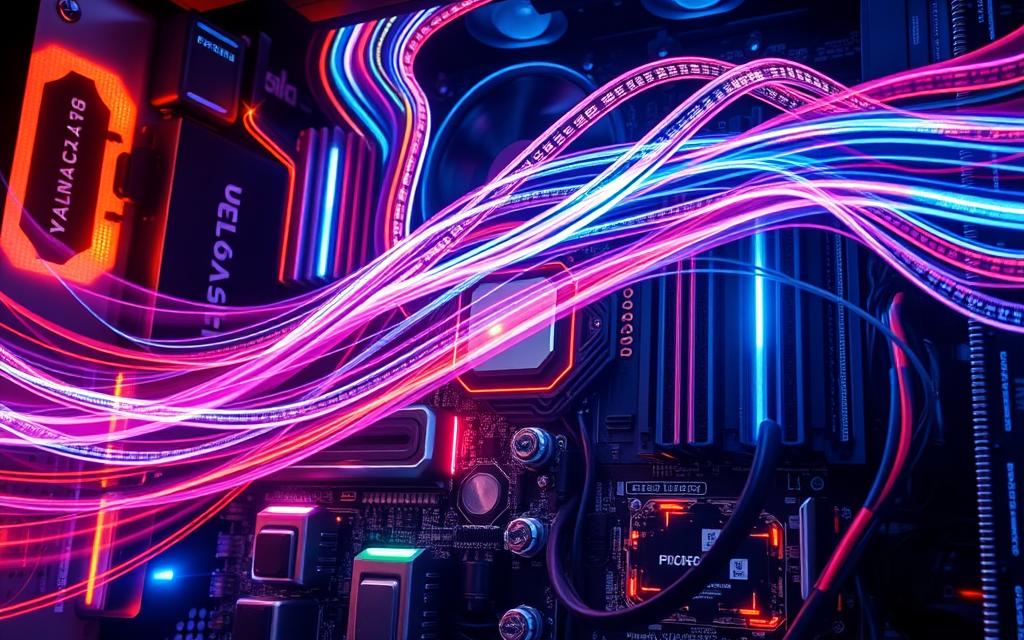
Knowing how hardware affects user experience helps users make better choices. They can pick the best computer systems for their needs, ensuring great performance and value.
A well-designed and well-maintained computer system can provide a seamless and efficient user experience, making it an essential tool for modern computing.
Modern Hardware Innovations Shaping Computing
Modern hardware innovations are changing how we use computers. They are making data processing and storage solutions better. For example, computer hardware is now key in our digital world.
Some big changes include:
- Quantum computing hardware, which can solve problems that old computers can’t
- Artificial intelligence processing units, speeding up AI workloads
- Sustainable hardware solutions, making computers greener and more energy-efficient
These changes are making computers faster and more efficient. They also open up new ways to use computers. As we move forward, these innovations will keep shaping the computing world.
Hardware Maintenance and System Longevity
Keeping your computer hardware in good shape is key to its long life and top performance. This means cleaning dust from input/output devices and updating the processing units firmware. Doing these tasks helps avoid overheating and reduces the chance of hardware failure, keeping your system stable.
A well-kept system boosts your user experience and work efficiency. To keep things running smoothly, it’s important to follow preventive maintenance steps. These include:
- Regularly cleaning dust from hardware parts
- Updating drivers and firmware for input/output devices and processing units
- Keeping an eye on system temperatures and adjusting cooling as needed
Also, upgrading your hardware can keep your system running at its best. This might mean swapping out old processing units or adding more memory to boost efficiency.
By focusing on hardware upkeep and being proactive with system care, you can make your computer last longer. This means less downtime and a smoother computing experience.
| Maintenance Task | Frequency | Benefits |
|---|---|---|
| Clean dust from hardware components | Every 3-6 months | Prevents overheating, reduces risk of hardware failure |
| Update drivers and firmware | Every 1-2 months | Improves system stability, enhances performance |
The Economic Impact of Hardware Choices
Choosing the right hardware is key to saving money. Memory and storage are vital for a computer’s performance and system reliability. Opting for the best hardware can lead to cost savings and better productivity.
A study by IPCSite shows the importance of knowing about computer hardware. This knowledge helps make smart choices, avoiding unnecessary costs. It ensures systems meet specific needs.
When looking at the cost of hardware, consider:
- Initial cost of hardware components
- Ongoing maintenance and upgrade costs
- Impact on system reliability and performance
- Potential cost savings through optimized hardware configurations
By carefully weighing these points, you can reduce the cost of hardware choices. This ensures your computer system works well and efficiently.
Understanding the economic impact of hardware choices is key. It helps make smart decisions for better performance and reliability.
Future Trends in Computer Hardware Development
Computer systems are changing fast, thanks to new hardware and software. Technologies like quantum computing and artificial intelligence are set to change computing a lot. For example, research shows these technologies could change how we handle data.
New developments include better processing units, improved memory and storage, and linking hardware with IoT and smart systems. Hardware and software must work well together to handle big data. Experts say knowing about computer hardware is key for better system performance and software compatibility.
Emerging Technologies
- Quantum computing: enabling faster and more secure data processing
- Artificial intelligence: improving machine learning and data analysis
- Edge computing: reducing latency and improving real-time data processing
Looking ahead, we must think about the good and bad of new technologies. They will shape computer hardware. Keeping up with the latest in hardware and software will help us see the exciting future of computing.
Conclusion: Embracing the Power of Hardware in Modern Computing
Exploring the role of hardware in computers shows its importance. It’s key to unlocking modern computing’s full power. The quality and setup of hardware parts greatly affect system performance and reliability.
Optimising hardware ensures smooth system operation and less downtime. Regular hardware maintenance is vital. This includes updates, replacing parts, and cleaning.
These steps not only make our devices last longer but also protect our data. As technology advances, embracing new hardware innovations is critical. It will shape the future of computing.
Let’s keep understanding hardware’s impact and use its power. Appreciating the hardware that supports our digital lives opens up new possibilities. It helps create a more efficient, reliable, and future-proof computing world.
FAQ
What is the role of hardware in a computer system?
Hardware is the core of computing. It’s vital for a computer to work well. Each part, like the processor and memory, plays a key role. Together, hardware and software make computers run smoothly.
How does the evolution of computer hardware impact modern computing?
New hardware has made computers much better. They’re now faster and use less power. This has led to more complex tasks and quicker systems.
What is the relationship between hardware and software in a computer system?
Hardware and software work together. Hardware is the physical part, and software are the instructions. They need each other to function well. Improving this partnership boosts system performance.
How do different hardware components impact system performance?
Various parts affect how well a computer works. The CPU handles tasks, memory stores data, and storage holds files. Choosing the right parts can make a big difference.
What are the essential hardware components and their functions?
Key components include:
– Processing Units (CPU): The brain, executing instructions.
– Memory (RAM): Temporary storage for data.
– Storage (HDD/SSD): Permanent storage for files.
– Input/Output Devices: Allow user interaction.
How does hardware impact system reliability and efficiency?
Hardware greatly affects a system’s reliability and efficiency. Quality components ensure stability and performance. Regular maintenance and upgrades are essential for optimal performance.
What is the role of hardware in data processing and management?
Hardware, like processing units and memory, handles data processing. Storage solutions manage and secure data. Hardware also protects sensitive information through encryption and access control.
How does hardware influence the user experience?
Hardware directly affects how users interact with computers. Good hardware means fast responses and smooth performance. Poor hardware can cause delays and crashes, ruining the user experience.
What are the modern hardware innovations shaping the computing landscape?
New innovations include:
– Quantum Computing Hardware: Fast computations using quantum mechanics.
– Artificial Intelligence Processing Units: Speeds up AI and machine learning.
– Sustainable Hardware Solutions: Eco-friendly and energy-efficient components.
How can hardware maintenance and upgrades enhance system longevity?
Regular maintenance and upgrades are key. They keep hardware running well and extend its life. Upgrading can also boost performance and prevent bottlenecks.
What is the economic impact of hardware choices in a computer system?
Choosing hardware wisely can save money. The right components improve efficiency and reduce maintenance costs. This makes for a cost-effective investment in computer systems.
What are the future trends in computer hardware development?
The future looks exciting with trends like:
– Emerging Technologies: Advances in quantum computing and AI.
– Predicted Hardware Advancements: Better processors and storage.
– Integration with IoT and Smart Systems: New applications and solutions.
